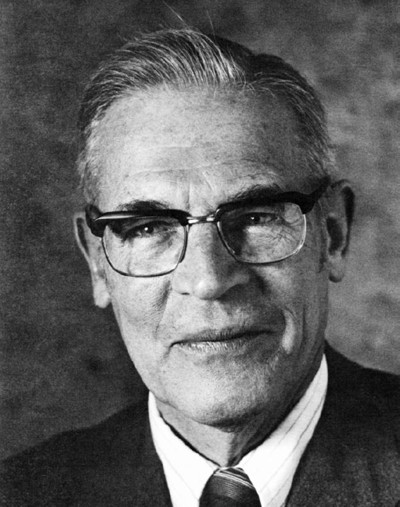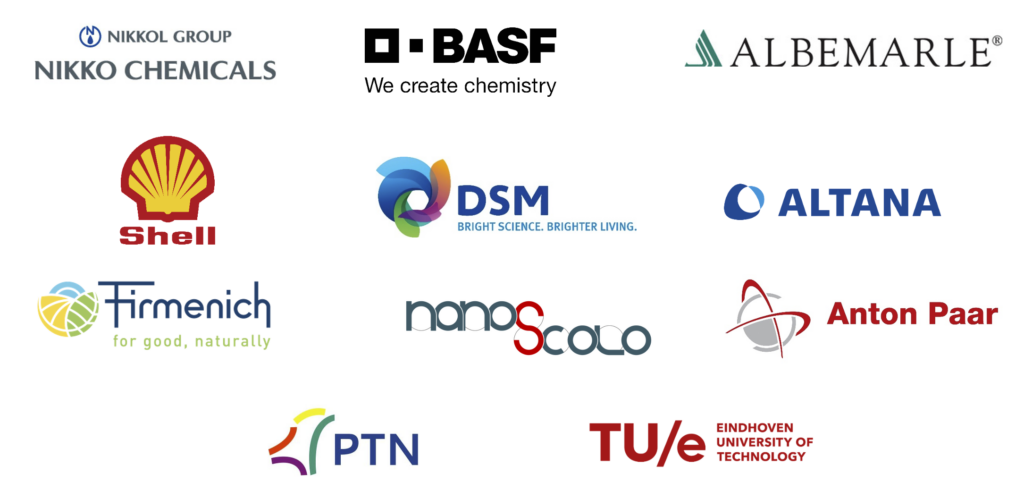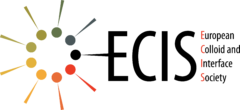In 2005 ECIS created the Overbeek Gold Medal to acknowledge excellent careers in, and inspiring contributions to, the field of colloid and interface science. The prize is awarded annually. The Overbeek Medal is supported by the Overbeek Foundation, which gratefully acknowledges donations.
The Overbeek Gold Medal honours leadership and scientific excellence in the field of colloid and interface science over an entire career. Hence the Overbeek Gold Medal recognizes extended periods of scientific excellence that have had an outstanding impact on this field.
All members of ECIS are invited to nominate candidates for the Overbeek Gold Medal. The completed nomination form should include a justification of merit of no more than 1,000 words. Please follow the instructions given in the nomination form.
The nominations are judged by a committee chaired by the ECIS Past President that includes also the ECIS President, the President-Elect, one representative of the Overbeek foundation and the winners of the Overbeek Gold Medal of the previous three years.
The timetable is: The first call for nominations is sent in November, and the deadline for nominations is the end of April. The winner will be announced on the ECIS website in June.
The Overbeek Gold Medal will be presented by the ECIS Past President at the annual ECIS Conference in September, combined with a prize lecture (Plenary).
A short summary of the laureate and description of the specific work for which he or she has been nominated will appear on ECIS web site.
All nominations shall be submitted to ECIS Secretary at pierandrea.lonostro@unifi.it.
Download here the nomination form
The first prize for 2005 was handed over to J.Th.G. (Theo) Overbeek himself.

Science and society owe a lot to Theo Overbeek (born 1911-2007). He is primarily known for his contribution to the theory of the stability of lyophobic colloids, currently denoted as the DLVO (Deryagin-Landau-Verwey-Overbeek) theory. Overbeek and Verwey were the pronounced harbingers of this work because of the way in which their 1948 monography was written. Those who take the trouble of not only citing this work but also reading it will become impressed by the systematic of the thinking, the power of the mathematics, and the consciousness of the various decisions that had to be taken. All of this typifies the true academic approach of eminent scientists.
Overbeek’s capacities were not restricted to double layers, electrokinetics, and colloid stability, he also wrote milestones on polyelectrolytes, irreversible thermodynamics, wetting, thin films and biochemical problems. When confronted with a challenge, he was in the forefront of recognizing the essentials, defining the central problem and giving, or helping others to give, the essentials of the solution. Those who worked with him as a student or colleague were always impressed by his versatility but easily frustrated because he was always faster and smarter. Luckily enough, he readily appreciated whatever qualities others had. He served in many committees in and beyond science, including his leading role in creating IUPAC nomenclature and definitions in the domain of colloid and interface science (1972). He was versed in all modern languages, could help his daughters with their Latin homework and ice-skated faster than most of his staff.
By attaching Overbeek’s name to its main annual prize, ECIS acknowledges the numerous and outstanding contributions of a great man. To those who may receive it, ECIS expresses its recognition of leadership and scientific excellence in the field of colloid and interface science.Since 2018 the Overbeek foundation’s board is composed of:
- Remco Tuinier, Eindhoven University of Technology, the Netherlands – chair
- Daniel Bonn, University of Amsterdam, the Netherlands
- Ilja Voets, Eindhoven University of Technology, the Netherlands.
- Marlous Kamp, Utrecht University, the Netherlands.
The Overbeek Medal is funded by

Previous members of the board of the Overbeek foundation were:
2006-2013: Martien Cohen Stuart, Wageningen University, the Netherlands – chair
2013-2018: Albert P. Philipse, Utrecht University, the Netherlands – chair
Frans A.M. Leermakers, Wageningen University, the Netherlands
Michel P.B. van Bruggen, Philips, the Netherlands.
Krassimir Velikov, Unilever & University of Amsterdam, the Netherlands.
